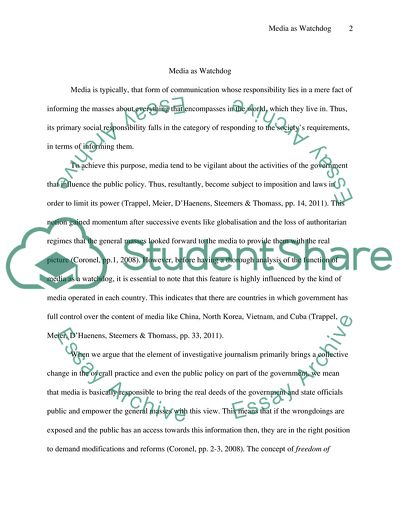Cite this document
(Media as Watchdog Essay Example | Topics and Well Written Essays - 1750 words, n.d.)
Media as Watchdog Essay Example | Topics and Well Written Essays - 1750 words. https://studentshare.org/media/1744208-taking-your-examples-from-either-the-press-or-broadcasting-assess-the-role-of-media-as-an-independant-watchdog-of-government
Media as Watchdog Essay Example | Topics and Well Written Essays - 1750 words. https://studentshare.org/media/1744208-taking-your-examples-from-either-the-press-or-broadcasting-assess-the-role-of-media-as-an-independant-watchdog-of-government
(Media As Watchdog Essay Example | Topics and Well Written Essays - 1750 Words)
Media As Watchdog Essay Example | Topics and Well Written Essays - 1750 Words. https://studentshare.org/media/1744208-taking-your-examples-from-either-the-press-or-broadcasting-assess-the-role-of-media-as-an-independant-watchdog-of-government.
Media As Watchdog Essay Example | Topics and Well Written Essays - 1750 Words. https://studentshare.org/media/1744208-taking-your-examples-from-either-the-press-or-broadcasting-assess-the-role-of-media-as-an-independant-watchdog-of-government.
“Media As Watchdog Essay Example | Topics and Well Written Essays - 1750 Words”. https://studentshare.org/media/1744208-taking-your-examples-from-either-the-press-or-broadcasting-assess-the-role-of-media-as-an-independant-watchdog-of-government.


